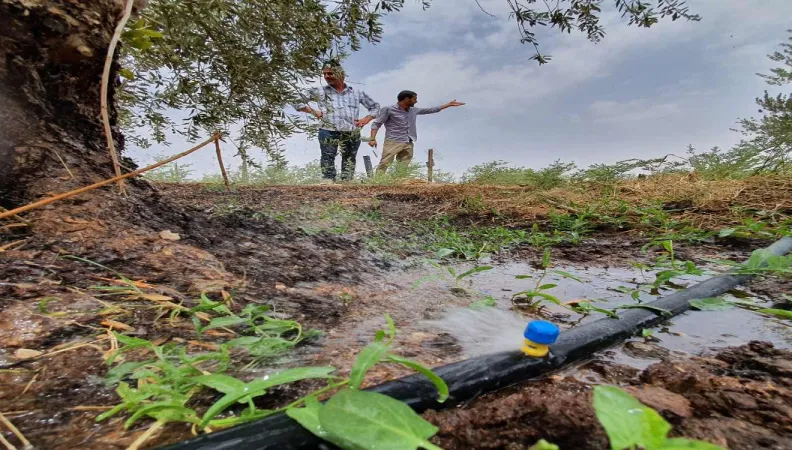Share the page
Smart Desert: smart development of eco-friendly solutions and economic regional agricultural techniques
Project


-
Project start date
-
-
Project duration
-
3 years
-
AFD financing amount
-
10 000 000 €
-
Country and region
-
Location
-
Mafraq Governorate
-
Type of financing
-
Grant, Minka Peace and Resilience Fund
-
Beneficiaries
-
International Union for Conservation of Nature
As the world’s second-largest refugee-hosting country, the Hashemite Kingdom of Jordan faces major strains on its economy and natural resources, water in particular. AFD’s support to IUCN in the agriculture sector aims to contribute to the socio-economic empowerment of vulnerable Jordanian and Syrian refugees, thereby strengthening community resilience and spurring local economic growth.
Contexte
While the international community has stepped in to alleviate the pressures of the Syrian refugee crisis, matching resources with growing needs has proven difficult, particularly with regard to workforce inclusion. The country thus suffers from a high rate of unemployment and rising poverty.
Most Syrian refugee men work in the agricultural sector as hired farm labor, while women tend to engage in home-based activities such as food processing. A 2018 study carried out by the International Labor Office highlighted the need for better working conditions and training on farms to reduce vulnerabilities, for the benefit of both workers and employers. While contributing 4% of GDP and 15% of employment, agriculture accounts for up to 75% of Jordan’s total water consumption.
In response to these challenges, much of Jordan’s agricultural policy has shifted towards sustainable management of water resources, food sovereignty, and agricultural exports.
Descriptif
Implemented through a consortium of organizations led by IUCN, this project will implement 3 main activities in the North-East Badia Highlands:
- Technical support to farms, processing units and home-based businesses, with a focus on productivity and the dissemination of improved agricultural practices.
- Support for entrepreneurship to improve beneficiaries' access to regular income throughout the year, through training in management and entrepreneurship, facilitation of partnerships and support to market linkages.
- Improvement of working conditions and respect of the labor law, through capacity building of cooperatives, awareness-raising and advocacy campaigns on decent work standards.
Impacts
The project aims to improve the regularity of the Jordanian and Syrian beneficiaries' income throughout the year, at this stage very dependent on the seasonality of agricultural activity, in particular through the diversification of productions, the adoption of better farming practices and a support for employment. The project also aims to support the improvement of working conditions for agricultural workers.


